October 31st. That’s when the Portland Bureau of Transportation plans to present their Central City in Motion project to Mayor Ted Wheeler and the rest of city council.
93 percent of respondents said the CCIM projects would make the central city safer, and 85 percent said the projects would make them more likely to take transit, walk, or bike
PBOT made the announcement on Twitter yesterday while explaining that the goal of the project is to, “improve and optimize our transportation system for all users, ensure that people driving, walking, biking and taking the bus know where they are supposed to be on the road and how they’re supposed to use the network.”
Regardless of the diplomatic way they describe it, this could be the most important investment in major bikeways in Portland for decades. With protected lanes as a default and an estimated budget of $30 million, we could finally see a few crucial pieces of the puzzle laid out in relatively short order (the first batch of projects would begin construction next year).
The plan comes into focus as a dire new report on climate change once again raises the stakes of our decisions on issues like transportation. Yesterday on Twitter, Portland Mayor Ted Wheeler said the report is, “powerful, precisely because it makes clear that we are not yet too late.” “Now is the moment to continue our commitment to transforming our economy,” Wheeler posted, “by embracing low carbon technologies that will create millions of good, local green jobs while providing cheap abundant energy for all and cleaning the air that we all breathe together.”
Wheeler will get his chance to show he’s not scared to lead and make good on those words on Halloween when PBOT staff present the Central City in Motion plan.
The projects
Late last month we reported that PBOT has whittled down the initial batch of projects to 11. Upon closer inspection we know see that the list is 12 projects totaling $33 million. The projects range from a new couplet on SW Broadway and 4th with an estimated cost of $5.8 million to a project that would add safer crossings of West Burnside for around $866,000.
Here’s the list:
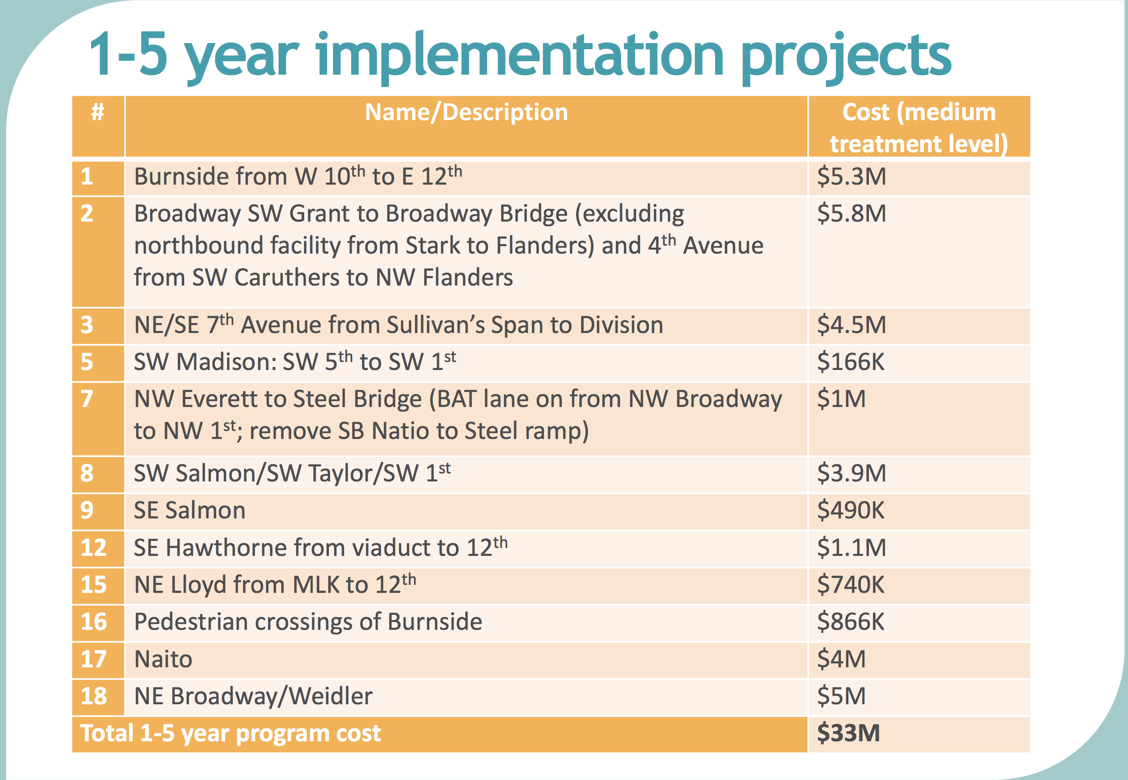
Learn more about all these projects here.
Keep in mind PBOT is focused on “1-5 year implementation projects” and just because something isn’t on this list doesn’t mean it won’t get built. There are 18 projects that passed PBOT’s screening process and I could see any one of them moving up the list if necessary (due to controversy, political heat, and so on). What PBOT wants to do is bring a list of “highly implementable” projects to council and use the political endorsement (if it passes) as momentum to push through to the design, engineering and construction phases.
At their most recent (and final) Sounding Board meeting, PBOT revealed results of two recent open houses and an online survey. 93 percent of respondents said the CCIM projects would make the central city safer, and 85 percent said the projects would make them more likely to take transit, walk, or bike. This are positive results, especially given that over 70 percent of respondents said they currently drive into the central city nearly every day or “sometimes.”
Those open houses also told PBOT that the four most popular projects are: the Broadway/4th couplet that aims to, “create a signature north-south bike facility”; a host of updates to West Burnside including safer crossings and bus priority and protected bike lanes; a permanent “Better Naito; and a project that would create transit lanes on MLK/Grand and safer crossings and protected bike lanes on SE 6th and 7th (note that the MLK/Grand elements of the project have been dropped).
There’s been some confusion around cost estimates shared by PBOT so far. In a presentation to the project’s Sounding Board committee last month, PBOT shared three slides of a potential project on SE Hawthorne Blvd that illustrated a low, medium, and high-cost build options (note: PBOT says current estimates are based on medium-build level):
Girding for pushback
PBOT knows this plan is likely to raise more concerns from people and organizations who fear a change to the status quo. Thankfully, the agency has done some homework in anticipation of these sky-is-falling proclamations that are sure to come.
They’ve done the traffic modeling math to show that, in tandem with other policy shifts expected by 2035, the addition of CCIM projects will lower average motor vehicle speeds in the central city by just 1 mph on average. For people who say we don’t have room on our roads, PBOT has calculated that the total right-of-way in the central city dedicated to transit and bikes will increase only 1 percent: from 3 to 4 percent for bicycles and from 1 to 2 percent for transit vehicles. Put another way, PBOT says if they built all 18 of the projects that survived their initial screening process, the additional 2 percent of space on those affected streets would have 61 percent more capacity.
What about car parking? It’s true that the CCIM projects will lead to hundreds of fewer places to park cars. As we’ve reported previously, PBOT is hard at work on a “parking mitigation strategy” document that will outline, “A multi-pronged approach to help ease the transition [to less parking] during and after project implementation.” This strategy will have three priorities: find more spaces where/if they can, use “operational improvements” to make existing spaces more efficient, and reduce demand.
A marketing push
Since we can’t add more streets to the Central City as we grow, we will need to invest and upgrade the existing transportation system to make it more predictable, reliable and safe for residents and businesses to use other travel modes. #centralcityinmotion pic.twitter.com/mvGVstiey6
— Portland Bureau of Transportation (@PBOTinfo) October 9, 2018
Now that we’re in the final few weeks before the council date, PBOT’s communications team has taken to the web to raise awareness of the plan. With the #centralcityinmotion hashtag on Twitter, PBOT is explaining why these street updates are necessary. Their primary argument is that the central city is primed for major growth in the coming years and — since our streets can’t grow along with the population — we must fit more people onto them. “If we don’t take action now,” reads one of their Tweets posted today, “it’s going to become more difficult to travel around the central city – whether you’re on foot, a bike, riding a bus, or in a car or truck.”
This statement echoes Mayor Wheeler’s contention that “We are not yet too late,” to make bold decisions in the face of imminent climate catastrophe. Giving the CCIM plan a strong vote of support would be a good start.
— Jonathan Maus: (503) 706-8804, @jonathan_maus on Twitter and jonathan@bikeportland.org
Never miss a story. Sign-up for the daily BP Headlines email.
BikePortland needs your support.
The post Council date set for $30 million Central City in Motion plan appeared first on BikePortland.org.
from Latest headlines from BikePortland https://ift.tt/2ycIaBU
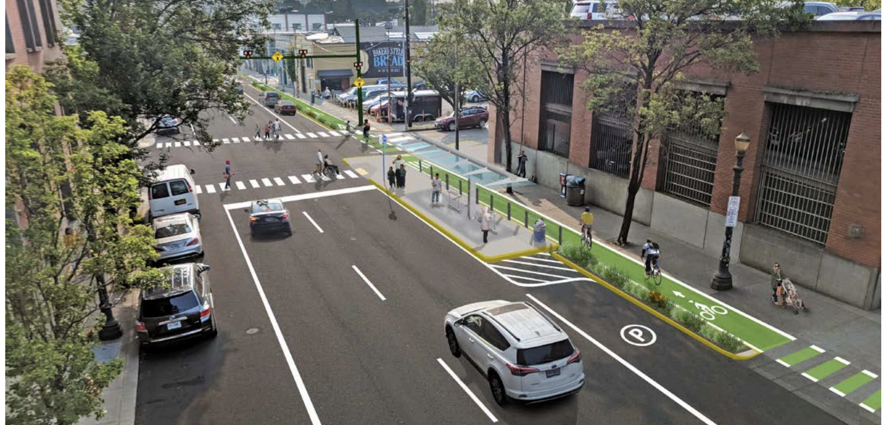
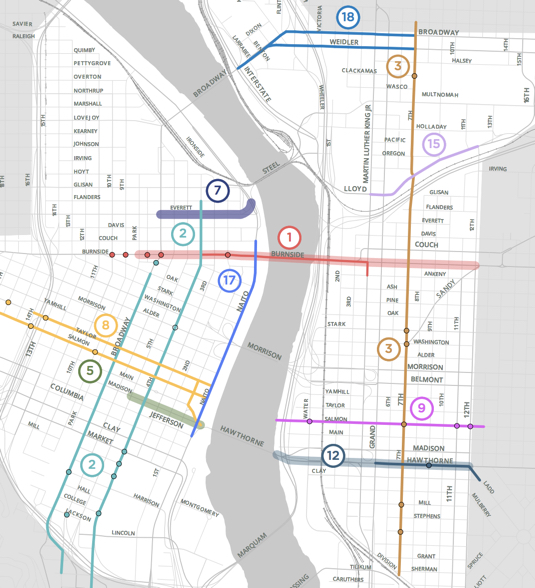


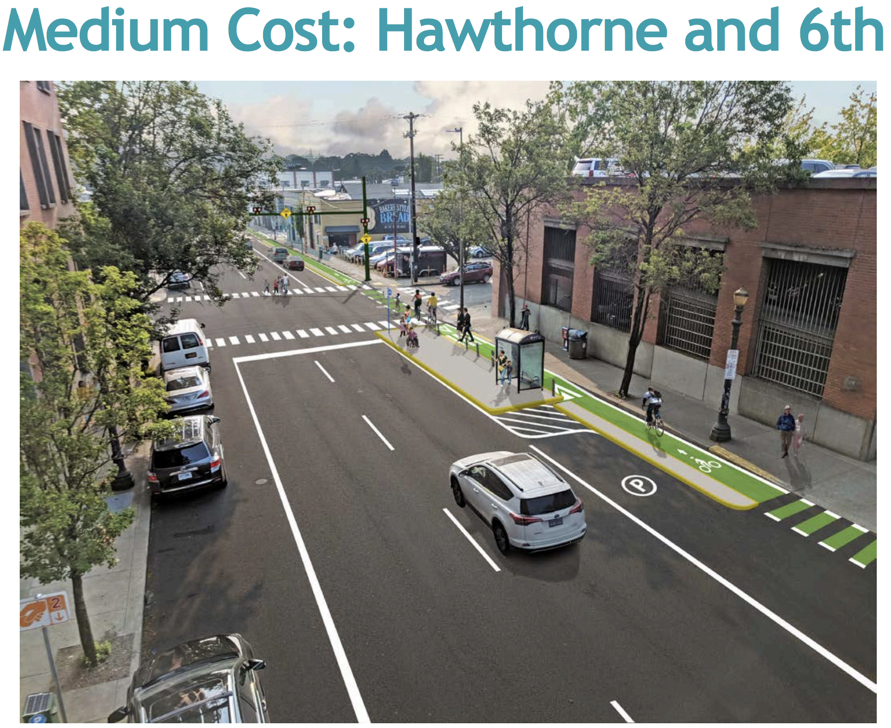
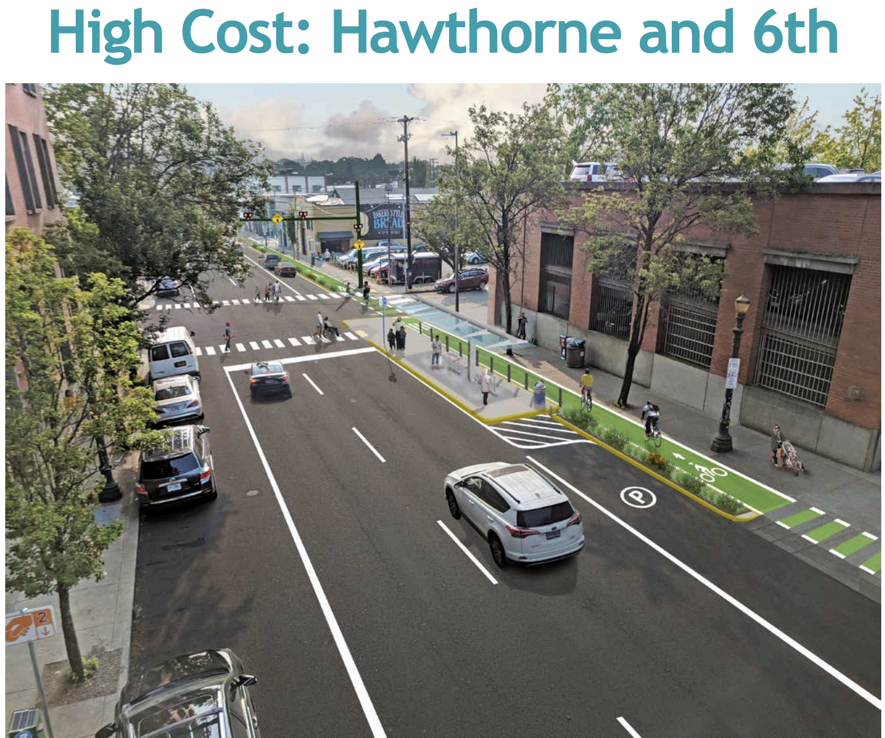
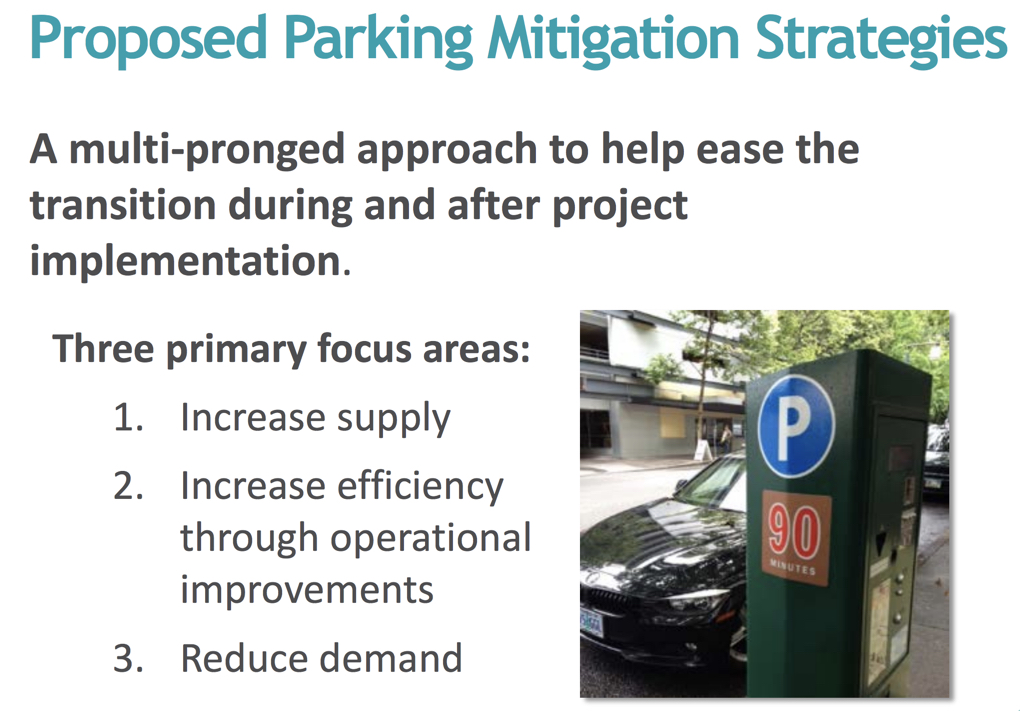

No comments:
Post a Comment